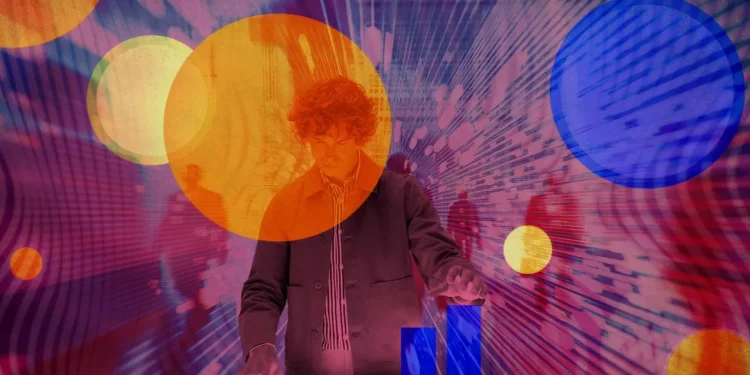AI is taking over the world. In the past few years, artificial intelligence has been rapidly advancing and making its way into various industries, from finance to healthcare to transportation. It is no surprise that there is a growing concern about AI replacing human jobs. However, while AI may be elbowing its way into ever more jobs, the reality is that how we work will change, but people skills will still be the most important factor.
Firstly, let’s address the elephant in the room – AI taking over jobs. It is true that AI has the potential to replace certain tasks and roles that are currently performed by humans. For example, automated systems and robots can handle repetitive and mundane tasks with precision and accuracy, freeing up human workers to focus on more complex and creative tasks. This is evident in industries such as manufacturing, where robots are being used to perform physically demanding and repetitive tasks, leading to increased efficiency and productivity. However, this does not mean that human workers will be completely replaced. In fact, AI will create more jobs, as it requires human input and supervision for its development and maintenance. This will lead to the creation of new roles such as AI trainers, data analysts, and AI ethicists.
Moreover, AI is not just about taking over jobs; it is about augmenting human capabilities. AI technology is constantly evolving and becoming more advanced, and it has the potential to enhance human productivity and decision-making. For example, AI-powered tools can analyze vast amounts of data and provide valuable insights and predictions, which can help businesses make more informed decisions. This can lead to improved efficiency, reduced costs, and increased profitability. In healthcare, AI can assist medical professionals in diagnosing diseases and developing treatment plans, leading to better outcomes for patients. In this sense, AI can be seen as a valuable partner to humans, rather than a competitor.
While AI may be able to handle certain tasks and processes, there are certain skills that are unique to humans and cannot be replicated by machines. These are the people skills – empathy, creativity, critical thinking, and emotional intelligence. These skills are essential in many industries, especially those focused on customer service, hospitality, and creative fields. AI may be able to assist with customer service, but it cannot replace the human touch and personal connection that is crucial in building relationships with clients and customers. In creative fields, AI may be able to generate ideas, but it cannot replace the innate human ability to think outside the box and come up with original and innovative concepts. This is where humans have the upper hand and will continue to play a vital role in the workforce.
Furthermore, people skills are crucial for effective teamwork and collaboration. In today’s interconnected world, the ability to work well with others is highly valued by employers. While AI may be able to perform tasks, it lacks the ability to communicate, empathize, and build relationships with colleagues. Human workers, on the other hand, possess these skills, which are essential for a positive and productive work environment. In addition, people skills are also important for leadership roles. Effective leaders need to be able to motivate, inspire, and connect with their team members, which requires a high level of emotional intelligence – something that AI cannot replicate.
In conclusion, the rise of AI may change the way we work, but it will not diminish the importance of people skills. While AI may be able to perform certain tasks and roles, there are certain skills that are unique to humans and cannot be replaced by machines. People skills will continue to be highly valued in the workforce, and individuals who possess these skills will be in high demand. Therefore, it is important for individuals to focus on developing and honing their people skills, as they will be the key to success in the future job market. AI may be elbowing its way into ever more jobs, but the reality is that humans and machines will need to work together to achieve the best results. So let’s embrace AI and use it to our advantage, while also recognizing and valuing the irreplaceable skills that make us uniquely human.







